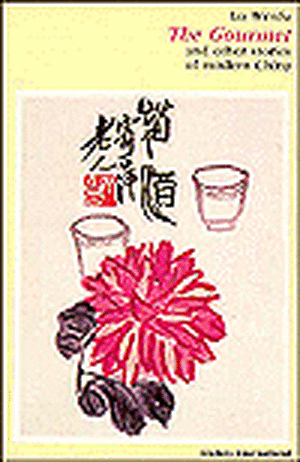The Gourmet and other stories of modern China
Autor Lu Wenfuen Limba Engleză Paperback – 27 feb 2023
Preț: 111.22 lei
Nou
Puncte Express: 167
Preț estimativ în valută:
21.28€ • 21.96$ • 17.76£
21.28€ • 21.96$ • 17.76£
Carte tipărită la comandă
Livrare economică 27 martie-10 aprilie
Preluare comenzi: 021 569.72.76
Specificații
ISBN-13: 9780930523398
ISBN-10: 0930523393
Pagini: 278
Dimensiuni: 120 x 190 x 16 mm
Greutate: 0.26 kg
Editura: READERS INTERNATIONAL
ISBN-10: 0930523393
Pagini: 278
Dimensiuni: 120 x 190 x 16 mm
Greutate: 0.26 kg
Editura: READERS INTERNATIONAL
Notă biografică
LU WENFU (1927-2005) was born in Taixing, a small town in northern Jiangsu Province, China. He moved to the canal city of Suzhou for high school, and this atmospheric place became his muse throughout his turbulent writing life. For university, he went to the Liberated Areas and then supported the communist revolution in northern Jiangsu. In 1949 he returned to Suzhou and became a reporter of New Suzhou Report (now renamed as Suzhou Daily). In 1955 he started the first period of his long writing career. Two years later Lu became a member of Literary Federation of Jiangsu. In 1957 he joined Gao Xiaosheng and other important writers to found the magazine The Explorers. It came under attack by the Communist leadership after the Hundred Flowers thaw ended. Lu was denounced as a Rightist. During the Great Leap Forward that followed, he was sent to do manual labour in a machine tool plant in Suzhou. During his three years as a mechanic, Lu was awarded distinctions including "Excellent Apprentice" and even "Crackerjack at Technical Innovations". As a result, he was deemed reformed and was allowed to write again. Nevertheless, with the Cultural Revolution breaking out in 1966, Lu was denounced once again, "struggled against", forced to confess to ideological crimes and paraded through the streets with a placard around his neck. Together with his wife and two daughters, he was sent to a rural area for reeducation through labor until 1976. After the Cultural Revolution ended with Mao Zedong's death in 1976 and the coming of the Deng Xiaoping reform era, Lu returned to Suzhou in 1978, at the age of 50 to start his second career as a writer. Lu became the managing editor of Suzhou magazine, and he was associated with journalism and literature, and of course also the charm. food, and atmosphere of his beloved Suzhou city for the rest of his life.
